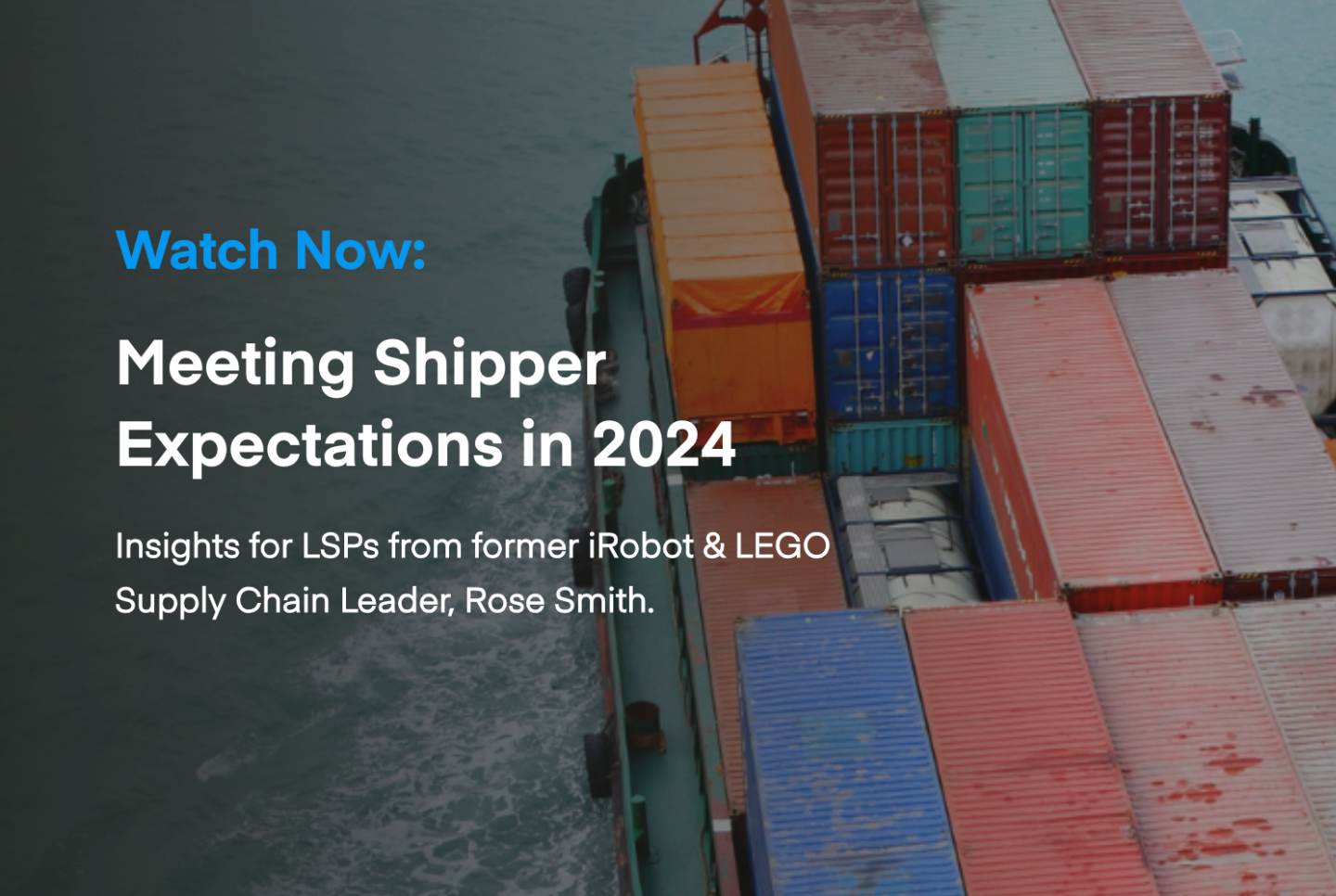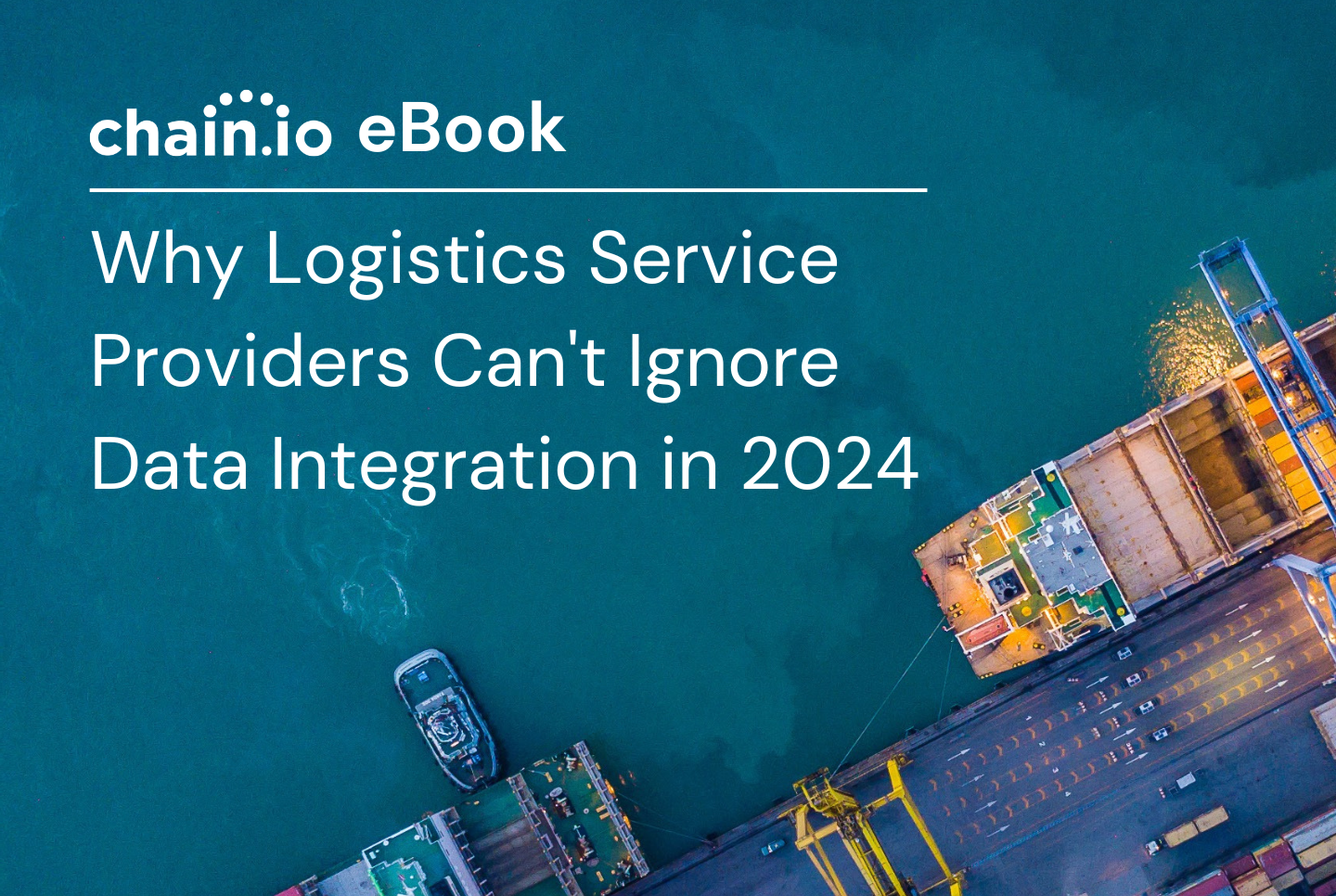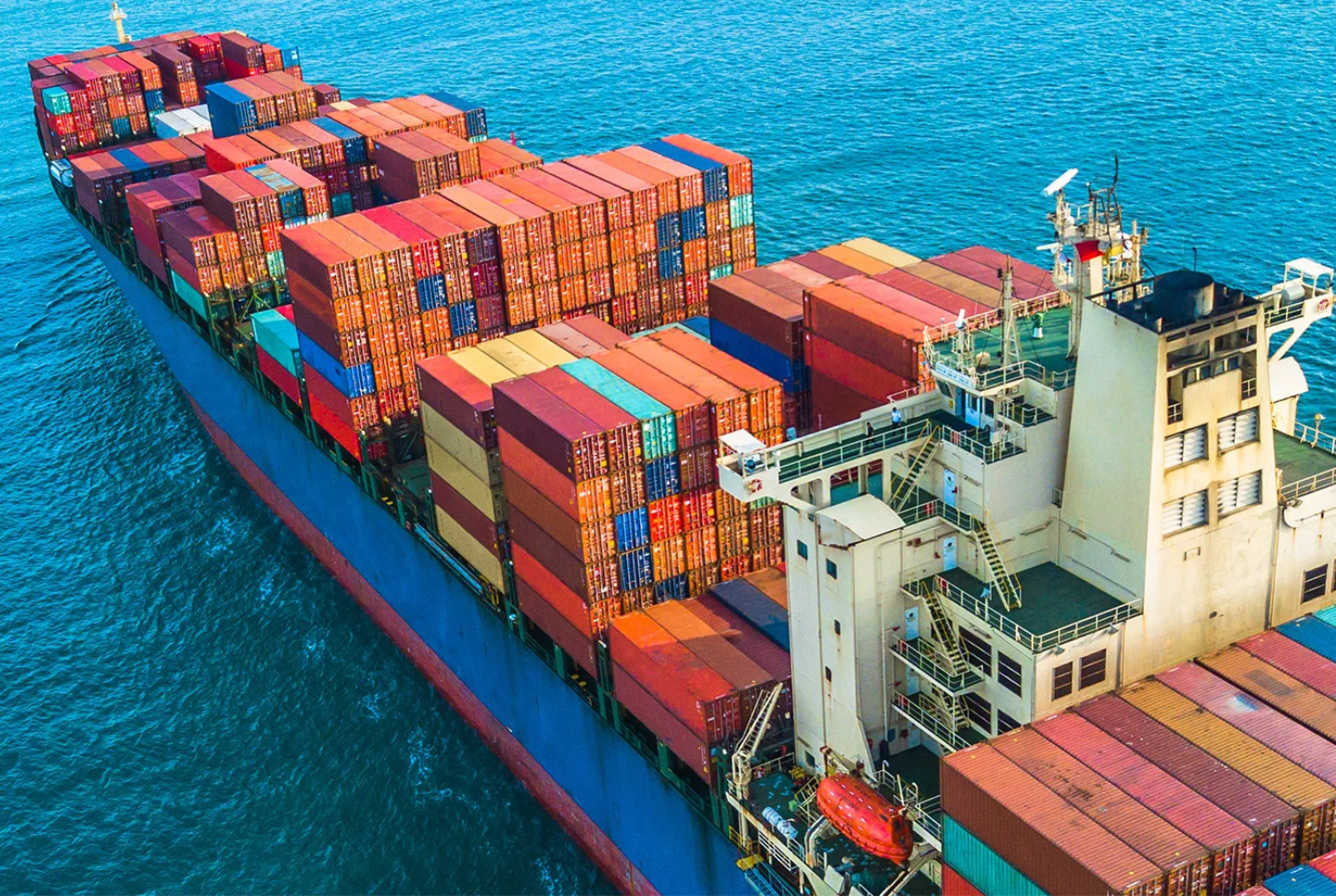
The shipping industry is in yet another transition period.
Evolving shipper expectations, emerging technologies, and global complexities make 2024 an intriguing year for logistics service providers (LSPs). In a recent live discussion Brian Glick, and Rose Smith explored these themes in depth. Read on for a recap of this discussion and recommendations from Chain.io VP of Customer Success, Rose Smith.
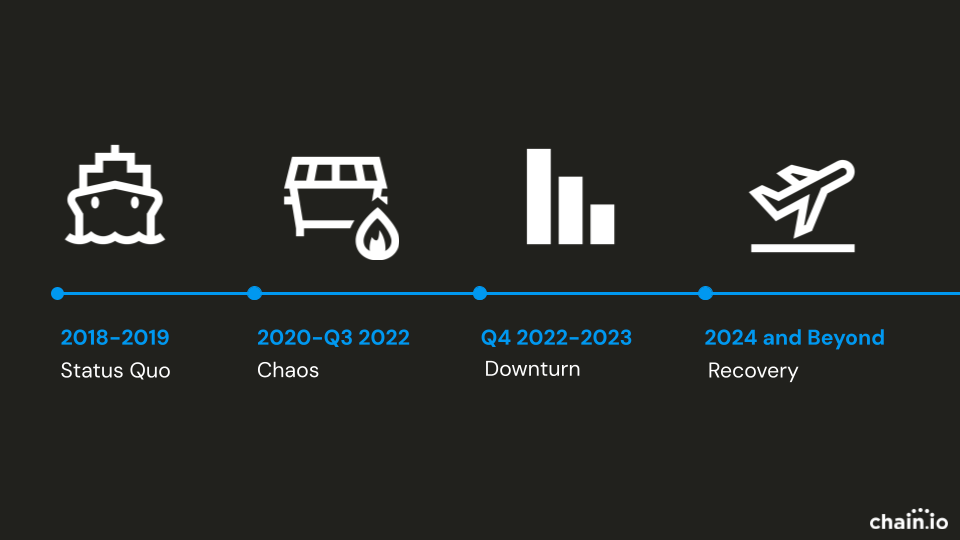
Understanding Shippers: The Diversity of Needs and Expectations
Shippers are not a monolithic group; they have varied needs and expectations based on their operations, market focus, and scale.
If we were to broadly classify shippers into three categories, they could easily be: tactically focused on minimal shipments, growing and needing more automation and lastly so large, the focus is on strategy. Understanding this diversity translates to success, whether that be a one-time value added transaction or growing a long-term relationship with a customer.

Recommendations
- Develop Tailored Services: Create service packages based on these categories. For spreadsheet-driven shippers, offer basic freight solutions with easy booking systems. For process-mature shippers, provide advanced analytics and data-driven recommendations.
- Customer-Centric KPIs: Introduce key performance indicators (KPIs) or create clear objectives and key results (OKRs) that cater to each category’s unique needs. For instance, for growth-focused shippers, time-to-market might be a crucial KPI.
The Evolving Role of Technology in Freight Execution
Technology is more than just a facilitator; it's an enabler that helps meet and exceed what your shipper customers expect. Advanced software tools can enhance visibility and efficiency, especially during challenging periods like we’ve seen in recent years.
Now, technologies like AI are making significant inroads into areas like sustainability and compliance, driving even greater efficiencies. Advanced technologies like machine learning can churn through large datasets to identify patterns, predict issues, and even automate solutions.
Even in light of these new advancements, many of your customers are still facing basic challenges - they want to move processes out of spreadsheets, have a better idea of where their freight is, or understand the impact their shipping activities have had. You can start serving your shipper customers better today by integrating your data to their TMS or ERP via API to share milestones, bookings, or invoices. Having their information readily available and actionable is a great first step to delivering greater value.
Navigating Challenges: Trade Wars, Lockdowns, and Recovery
In such chaotic times, the importance of risk management cannot be overstated. Strategies that focus on proactive risk mitigation and the rebuilding of customer relationships during the recovery phase are likely to yield better long-term results. This shouldn't just be an internal focus; it should be a part of the customer conversation too.
Recommendations
- Customizable Contingency Plans: Offer your clients the option to customize their own contingency plans in the event of disruptions. Being a good partner in tough times will go a long way in establishing long-lasting relationships.
The Rise of Sustainability and Emissions Reporting
Sustainability is no longer a buzzword; it's a mandate, especially in regions like California and Europe, where emissions reporting has become increasingly rigorous. Mode shifting, such as moving freight from air to ocean, offers a dual benefit—significant emissions reduction and cost savings. The ROI of sustainable logistics is clear, and it’s in the best interest of LSPs to educate their clients about it.
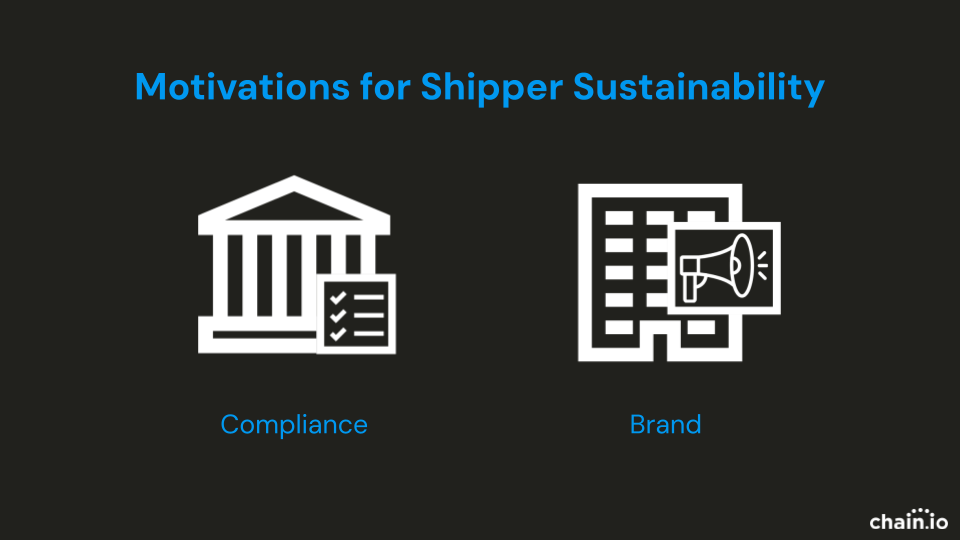
Tracking emissions isn't just about compliance either; it's about brand image, cost-saving, and future-proofing your business. When you say you offer 'sustainable logistics,' it needs to be more than lip service. This calls for clean, accurate data that not only aids in compliance but also serves as a strong differentiator in the marketplace.
Recommendations
- Multi-Modal Transportation Planning: Recommend shifts from air to ocean for customer’s shipments to reduce CO2 emissions.
- ESG Reporting Services: Expand your analytics services to include ESG (Environmental, Social, and Governance) compliance reports.
The Path Forward
In a rapidly evolving industry, adaptability is key. Delivering insights for customers directly to their systems, staying ahead of regulatory changes, and meeting your customers where they are based on their needs is crucial for success.
Watch the full recording of our discussion, or book a demo to learn how Chain.io can help you serve your shipper customers better in the new year.
Watch the DiscussionMeet with the Team
